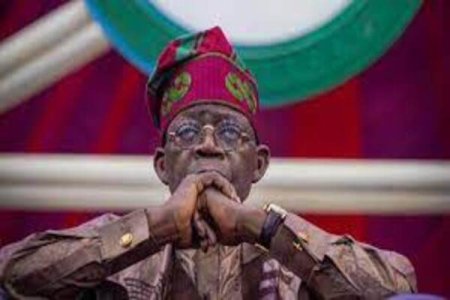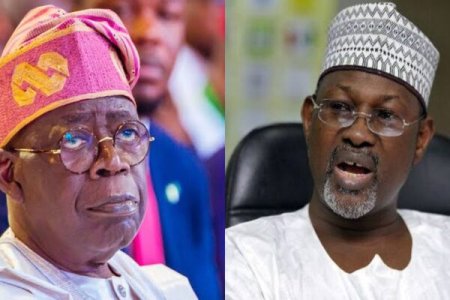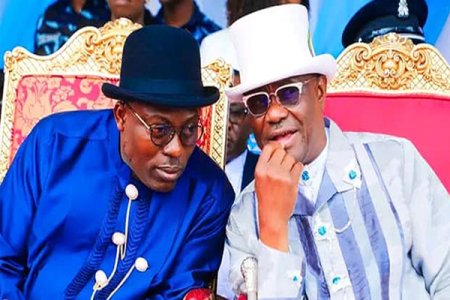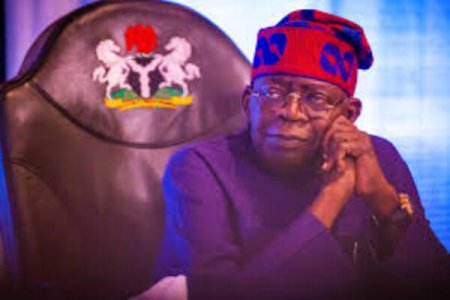
In a close call, both President Tinubu and Vice President Shettima nearly left Nigeria simultaneously, raising alarms amid Tinubu's mysterious absence after the World Economic Forum. Criticism mounts over government transparency and constitutional issues, with even Atiku Abubakar questioning the leadership vacuum. Nigeria faces uncertainty as key figures vanish
Nigeria finds itself amid a political storm as speculations soar and concerns deepen over the sudden and unexplained absence of President Bola Ahmed Tinubu. With Vice President Kashim Shettima's planned trip to the United States narrowly averted, questions swirl regarding the leadership vacuum in Africa's most populous nation.
Tinubu, who has been absent from Nigerian soil for over a week following his participation in the World Economic Forum (WEF) meeting in Riyadh, Saudi Arabia, continues to be a subject of intense scrutiny. Before his WEF engagement, the president embarked on an official visit to the Netherlands, engaging in substantive discussions with Dutch Prime Minister Mark Rutte and Dutch royalty.
As Nigerians grapple with the implications of Tinubu's prolonged absence, Vice President Shettima's aborted trip to the US further exacerbates concerns over governance continuity. Scheduled to represent the president at the 2024 US-Africa Business Summit, Shettima's cancellation due to a faulty aircraft underscores the fragility of Nigeria's political landscape in the face of uncertainty.
The void left by Tinubu's absence has ignited a firestorm of criticism from rights activists and legal experts alike. Deji Adeyanju, a prominent rights activist and lawyer, lambasted the government for its perceived irresponsibility and lack of transparency. Adeyanju's sentiments echo widespread discontent among Nigerians, who demand accountability and leadership in the face of adversity.
Furthermore, the National Assembly's conspicuous silence in the wake of Tinubu's disappearance has raised eyebrows, with critics accusing the legislative body of abdicating its constitutional duties. According to Adeyanju, the National Assembly has been reduced to a mere extension of the executive branch, failing to assert its independence and uphold the principles of checks and balances.
Legal experts like Madubuachi Idam warn of potential constitutional crises stemming from the simultaneous absence of the president and vice president. Idam highlights the constitutional imperative for continuity of governance, emphasizing the need for adherence to established protocols in times of leadership transition.
Amidst the turmoil, former spokesperson Daniel Bwala offers a contrarian view, asserting Tinubu's ability to govern Nigeria remotely. Citing constitutional provisions, Bwala contends that the president's physical presence in the country is not a prerequisite for effective leadership, sparking debate over the nature of executive authority in an increasingly interconnected world.
Even former Vice President Atiku Abubakar, the PDP presidential candidate, weighed in on the matter via Twitter, expressing grave concern over the absence of both the president and vice president. "I have been inundated by reports of the absence of the president and vice president from the country," he tweeted. "It is unprecedented that the two leaders will be absent from the country at the same time, especially now that the nation is faced with daunting challenges. The question that readily comes to mind is who is in charge of government at this point, or is it right to assume that we are on autopilot? -AA"
With all this confusion, Nigeria's future hangs in the balance. The mystery of Tinubu's whereabouts and the talk of impeachment leave the country at a critical moment.




